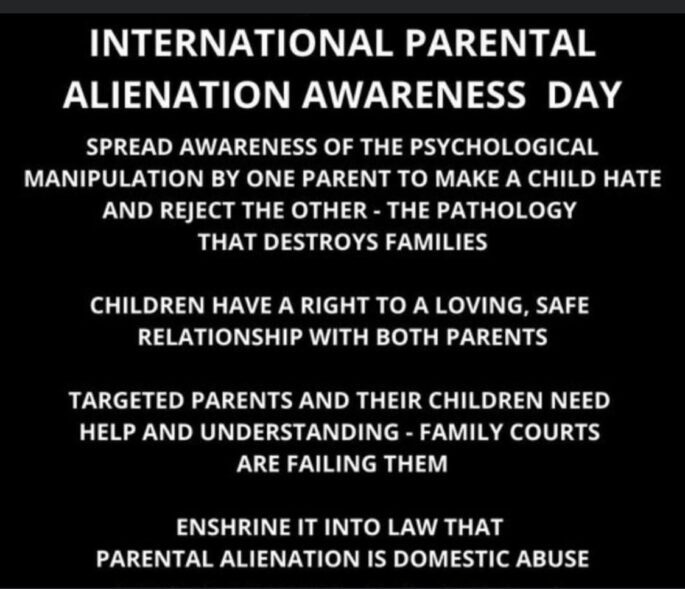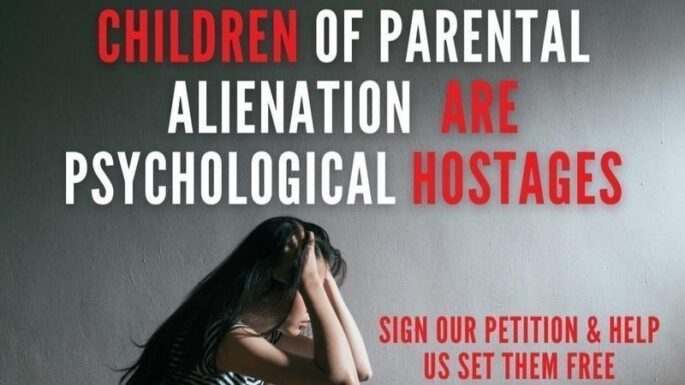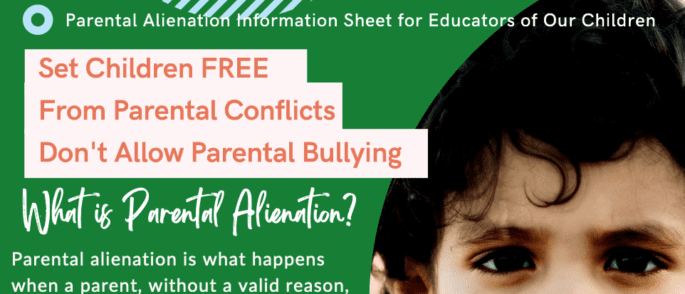Parental Alienation Awareness Day is Tuesday, April 25. Parental Alienation Awareness Day is observed on April 25 every year, to raise awareness about parental alienation.
Please say a prayer for the victims of Parental Alienation. The innocent children of PA suffer in devastating fashion the loss of a parent that they love, and often experience severe mental health issues. The targeted parent suffers the unimageable loss of relationship with their beloved children. The perpetrator, typically narcissistic, often with life long mental health issues, fails or refuses to acknowledge the lifelong damage that they inflict on their children, intentionally or otherwise.
Parental Alienation is a form of child abuse and is also referred to as Hostile Aggressive Parenting. Parental Alienation involves the behavior of a parent or an adult a child trusts, knowingly or unknowingly creating alienation in the relationship between the child and the co-parent.
Parental Alienation Awareness Day, PAAD, was first observed in the United States, Canada and Bermuda and now is observed in numerous countries throughout the world. It’s held as part of a global awareness campaign about parental alienation.
It aims to highlight to parents and other caregivers the effects parental alienation could have on their children and educate adults to identify signs either they or someone close to the child are behaving in a manner that could affect the children.
Parental alienation essentially happens when one caregiver attempts to turn a child against another caregiver. This is often done to persuade the child and to exclude the other parent from the child’s life.
Some of the most common types of behavior displayed by parents include constantly badmouthing the other parent, making false allegations about the other parent, limiting or minimizing the other parent’s contact, forbidding the child from talking about or discussing the other parent, faking an expression the other parent dislikes or saying they don’t love the child, or trying to force the child to reject the parent. Parental alienation may cause psychological damage to the children that can last long after they’ve become adults.










